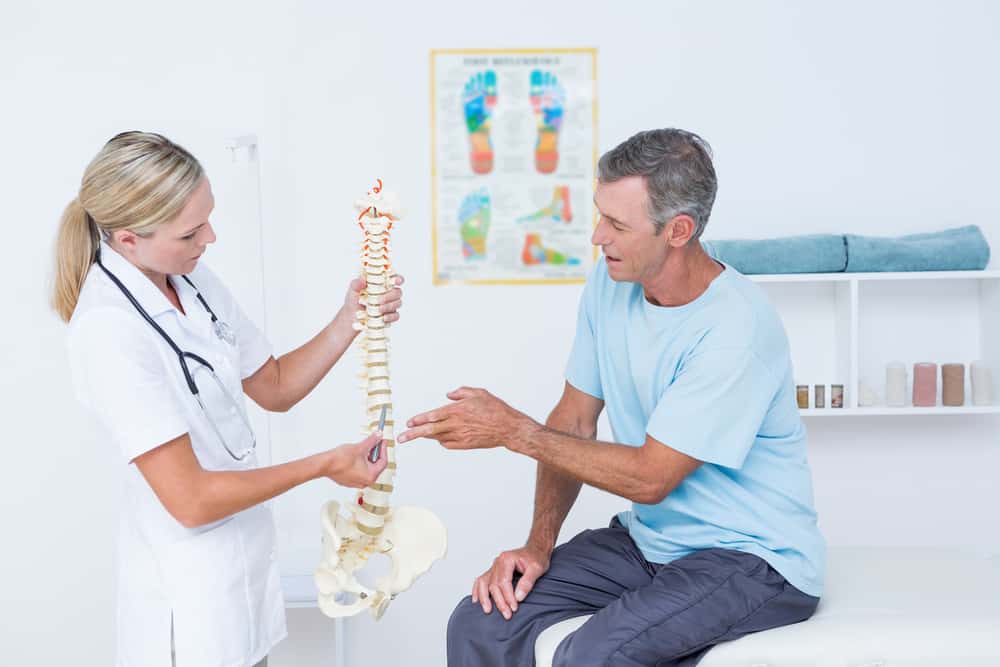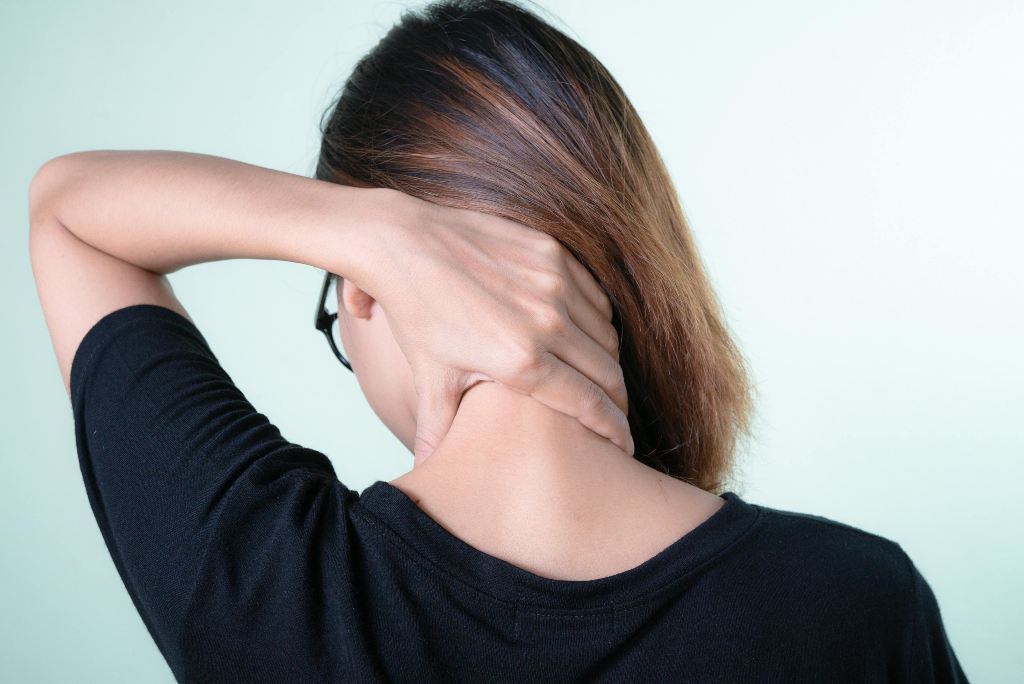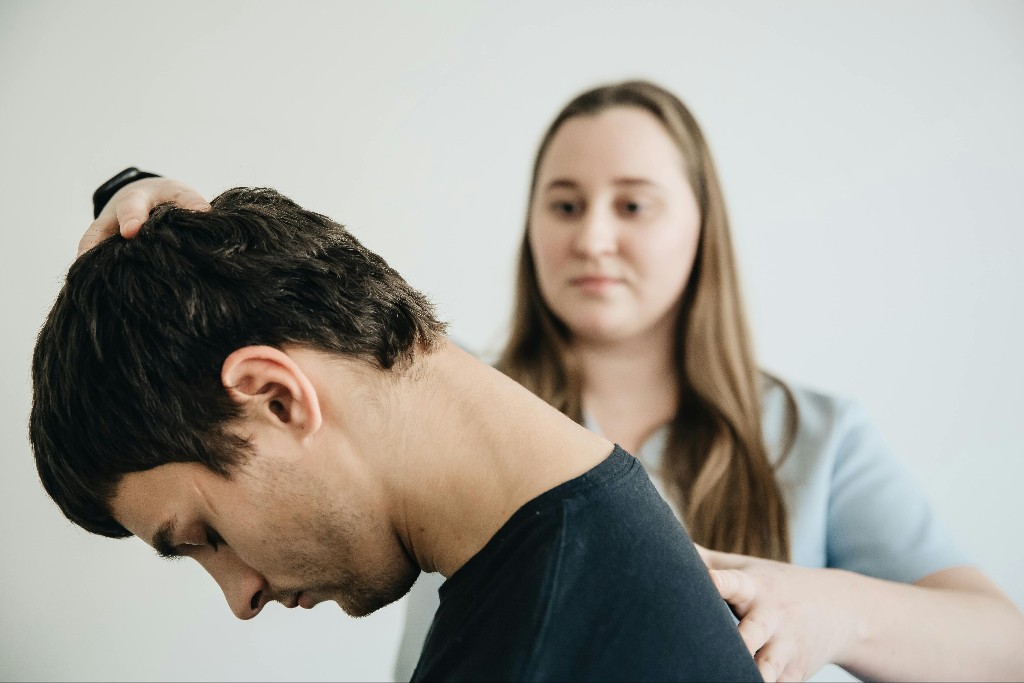The discs that separate our vertebrae are small, but when they are displaced or damaged, they can have a big impact. A herniated disc can be extremely painful and even if you have managed the symptoms for some time, they will likely worsen and require treatment to fully resolve. Like any injury, the sooner you are able to begin work with a spine specialist, the better your chance of full recovery becomes. If you aren’t sure what to expect, read on to learn about treatment options and what may be right for you.
What Is a Herniated Disc?
In order to understand herniated disc treatment options, it is important to understand the mechanics of the spine and how it can become damaged. The spine is made up of stacked bones called vertebrae. In order to prevent these bones from rubbing together, they are separated by round, pillow-like discs. These discs have a tough outer layer that surrounds a gel-like inner substance. When an impact or trauma occurs, these discs can be jolted out of place or ruptured.
When a disc is herniated, a portion of it is pushed out of its outer layer, it can enter the spinal canal, which cannot accommodate the disc fragment and the nerves that are typically there. This interference with the nerves can cause pain in the area associated with that nerve.
Medications for Herniated Discs
With any back pain, you may need to manage with some medication to help you get through other treatment. While you should never rely on medications as your main source of relief, there are a number of ways that herniated disc pain can be addressed.
For mild to moderate pain, over-the-counter pain medication will likely suffice. Make sure you talk to your doctor about the best type of medication, as the anti-inflammatory properties of some may be recommended in your case. For more serious cases, your doctor may prescribe muscle relaxers or opioids to relieve symptoms, but these should be used sparingly.
Cortisone injections are commonly offered if oral medication doesn’t bring relief. These injections place a corticosteroid into the area surrounding the spinal nerves to reduce pain.
Physical Therapy
Herniated disc pain can be exacerbated by pressure placed on the spine, meaning weak muscles can lead to more weight and more pain. Physical therapy is designed to strengthen the muscles, making them better able to support the weight and avoiding instability or worsening symptoms.
A physical therapist will design a routine of gentle exercises that strengthen your core muscles, improve posture, and relieve pressure on the nerves. Not only can this help to relieve your current pain and symptoms, but it can also help prevent future injuries to the spine.
Physical therapy is often accompanied by chiropractic adjustments, massage, and other therapies like ultrasound therapy.
Surgical Treatments
When conservative treatment options do not resolve your herniated disc pain, a spine specialist may recommend surgery to address the issue. Depending on your situation, different types of surgeries may be recommended. The benefits of surgery are weighed carefully against the risks of the procedure before a decision is made on whether to proceed.
You may be considered a candidate for surgery if:
- Pain limits normal activity or impairs quality of life
- Bowel and bladder function is impaired
- Progressive neurological deficits, or even paralysis, occurs
Depending on where the herniated disc is, different procedures may be necessary.
A herniated disc in the lumbar spine can be repaired by a discectomy. In this procedure, a small incision is made down the center of the back and a small opening is made between the vertebrae to access the disc, which is then removed. The spine can then be stabilized and fused. In some cases, like when there is disc degeneration in a single disc present, the disc can be replaced with an artificial disc.
If a herniated disc is present in the cervical (upper) spine, the operation is typically performed from the front of the neck.
Finding Care for Herniated Discs
Whether you have recently suffered a herniated disc or you have been dealing with symptoms for some time, finding a spine specialist is the first step to relief. While a physical therapist and an Atlanta chiropractor are often part of your care team, you will likely work with orthopedists and neurologists as well. These experts can help to determine the location and severity of your herniation.
At AICA Orthopedics, our spine specialists work together to create a comprehensive care plan and determine the right treatment option for each individual patient. Contact us today to begin your recovery.





